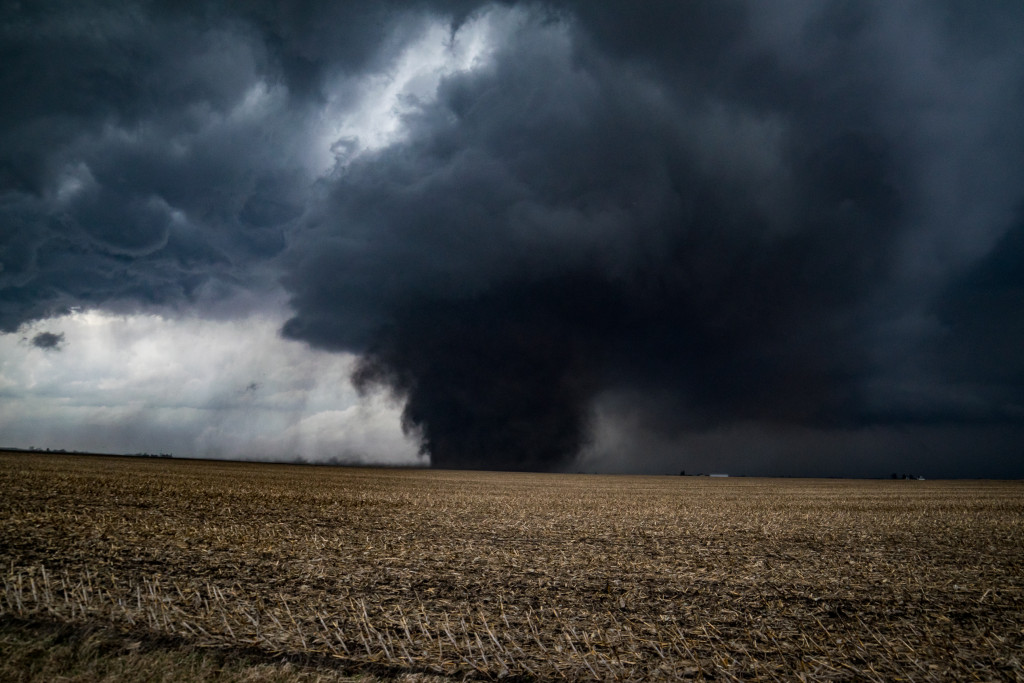The environment is one of the biggest and most urgent public concerns. Many people fear the consequences of climate change which include frequent occurrences of severe weather conditions. Already, many countries worldwide are experiencing deadly heatwaves, long periods of drought, strong hurricanes, snowier but shorter winters, widespread wildfires, and other natural disasters.
It’s the responsibility of every person, including all business owners, to take action against climate change.
Extreme Weather Conditions Lead to Property Damage
A business cannot function if its property is damaged. Heavy rains and flooding can ruin office equipment, products, furniture, and more. Severe weather conditions also often lead to power outages, which can cause a loss in income if the business is unable to operate for an extended period.
In 2017, Hurricane Harvey caused $125 billion worth of damage in Texas and Hurricane Irma caused another $50 billion worth of damage in Florida. These natural disasters not only impacted businesses financially but also emotionally since many people lost their homes and businesses.

Businesses Can Lower Energy Consumption
One of the most effective ways for businesses to protect the environment is by reducing energy consumption. This can be done by making simple changes such as turning off electronics when they’re not in use, using energy-efficient light bulbs, ensuring that appliances are properly sealed and insulated, and more.
Entrepreneurs should check their building Standard Energy Procedure and Energy Performance Certificate (SEP and EPC) to see how energy-efficient their property is.
Energy conservation is not only environmentally friendly, but it can also save businesses money on their energy bills. In the long run, this can add up to a lot of saved money.
Natural Disasters Disrupt Businesses
In addition to causing property damage, natural disasters also often disrupt businesses. This can be a result of power outages, damage to essential infrastructure, and more.
During heavy rainfall, consumers are more likely to stay put inside their homes rather than venture into the storm to go to a store. This can cause a decrease in sales for businesses.
A wildfire can force a business to close down temporarily if the smoke and air quality become too dangerous. Naturally, when the store is closed, the business will lose money.
Consumers also tend to save money in times of crisis. The pandemic of COVID-19 has caused people to stockpile goods, which has led to less spending in other areas such as restaurants and entertainment.
Severe Heat or Cold Leads to Supply Shortages
In extreme weather conditions, the demand for goods and services often increases. However, if the weather is too severe, businesses cannot operate as usual which can lead to a shortage in goods and services.
A heatwave can cause shortages of food and water, while a cold snap can lead to a shortage of heating oil and gas. In both cases, businesses will struggle to meet the increased demand.
When businesses are unable to meet the demands of their consumers, it can lead to frustration and even violence.
Deadly Epidemics Cause Labor Shortages
Labor shortages are another common issue that businesses face during times of crisis. When an epidemic is spreading, people are often too afraid to leave their homes and come to work. This can cause a shortage in the workforce, which can lead to a decrease in production.
In 2020, there was a COVID-19 pandemic that caused many people to become infected with the virus. As a result, labor shortages were seen in various industries such as manufacturing, food service, and retail.
Going Green Attracts Customers
When a business goes green, it often sends a message to its consumers that it is concerned about the environment. Many people are now looking for brands that care about the planet and are willing to make changes to protect it.
Businesses can show their customers that they are dedicated to sustainability by implementing eco-friendly policies and practices. Some ways of doing this include using recycled materials, using renewable energy sources, and reducing packaging.
In general, consumers are willing to spend more money on brands that care about the environment. Previous studies found that the majority of global consumers, especially young people, are willing to pay more for sustainable products.
This means that businesses that go green can potentially attract new customers and increase their profits.
There are many reasons why businesses should help protect the environment. Some of these reasons include reducing energy consumption, saving money on energy costs, reducing their carbon footprint, and more. By implementing some or all of these strategies, businesses can not only help preserve the environment but also save money on energy costs and reduce their carbon footprint. In addition to this, businesses can also benefit from going green by attracting new customers and increasing profits. So, why shouldn’t businesses help protect the environment? It’s the right thing to do, and it’s also good for business.


